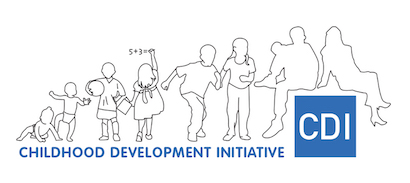Today (27.07.2022), the Childhood Development Initiative (CDI) announces the release of two new studies that demonstrate how living in a disadvantaged area exacerbated the negative effects of the Covid-19 pandemic. #ChildPovertyUnmasked #FoodPovertyUnmasked
Covid 19 Pandemic ‘unmasked’ food poverty.The harmful consequences of the Covid-19 epidemic were made worse by living in a disadvantaged area.
- The studies “Perspectives and experiences of Covid-19: Two Irish studies of families in disadvantaged communities” investigate families’ perspectives and experiences during the Covid-19 pandemic.
- As a result of the pandemic, service providers in these areas ‘unmasked food poverty’, becoming more aware of the extent and depth to which many families experienced food poverty. Many service providers were taken aback. However, there was a positive multi-agency coordinated response, with food packs delivered to families.
- Families in these communities were more likely to experience social isolation, especially those not in paid employment, which had a negative impact on their and children’s well-being. The studies also reveal that problems with digital access led to increased social isolation and had a negative impact on children attempting to access online learning.
“Both research’ provide evidence that the Covid 19 Pandemic produced issues for low-income households, impacting them emotionally and financially. They had problems with social isolation and could not afford digital access for their children’s education. However, a lot was discovered regarding the most effective way to assist these families, and we anticipate that the results of this research will have an influence, particularly given the Government’s intention to address child poverty.”
Jefrey Shumba, CDI Data Specialist and article author.
Findings include:
- Tackling the harmful effects of Covid-19 calls for a multi-agency approach. Targeted policies to maintain or improve economic and job security support for the well-being and development of parents and children, and an ongoing commitment to combat social isolation in families are just a few of the measures that are highlighted.
- The importance of knowing and understanding the effects of Covid-19 on the mental health and well-being of children, parents/caregivers, and providing appropriate support – specifically using evidence-informed services.
- A reinforcement of the relevance of developing measures to support families with children of different ages, from early childhood to adolescence, addressing emerging needs or existing inequalities unmasked by the pandemic.
“Research on the pandemic’s short- and long-term effects helps us better understand the needs and resources of families. Children’s, young people’s, and parents’ perspectives and experiences are critical for informing effective policy and practice aimed at supporting families.”
Catarina Leitao, article author.
ENDS
About
The Childhood Development Initiative (CDI) works to improve outcomes for children, families and communities in Tallaght and throughout Ireland. To do this:
- We deliver evidence-informed prevention and early intervention programmes, in partnership with communities and services.
- We support the child and family workforce through professional development training and consultancies.
Media ContactPauline MinskyCommunications CoordinatorChildhood Development Initiativepauline@cdi.ieTel: 0896169169
Notes to Editors:
-
Link to studies CDI_Covid19_Unmasked Poverty_Two Irish studies
-
Marian Quinn, CEO of The Childhood Development Initiative is available for media interviews.
- Data were collected between December 2020 and January 2021 working with a comprehensive range of focus groups including children, parents and service providers living and working in Dublin 24 and Dublin 1.





